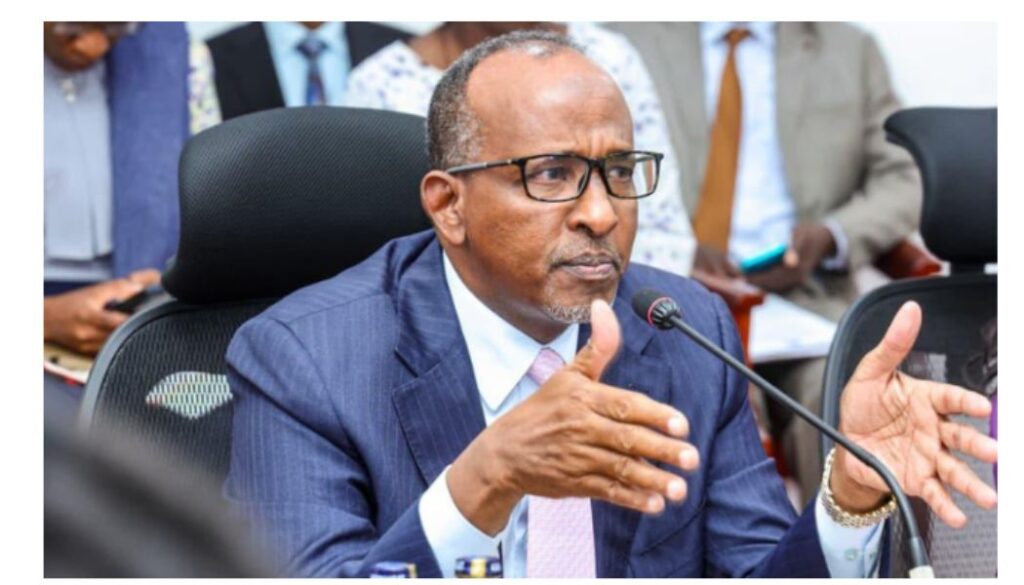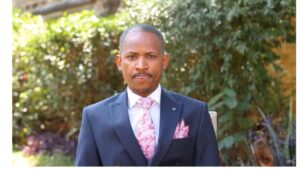Health CS Duale lists 36 healthcare services not available in Kenya under SHA (LIST)

Health CS Duale lists 36 healthcare services not available in Kenya under SHA
The Ministry of Health has gazetted a list of 36 healthcare services that are currently not available in Kenya, citing gaps in expertise, equipment, and medical supplies.
In a Gazette Notice signed by Health Cabinet Secretary Aden Duale, the decision followed recommendations by the Social Health Authority (SHA) and the Benefits Package and Tariffs Advisory Panel (BPTAP).
The services listed include advanced joint replacement surgeries, highly specialized cancer therapies, and complex transplant procedures.
Among the services declared unavailable are wrist joint arthroplasty, metacarpal joint arthroplasty, and ankle joint arthroplasty.
The ministry explained that the procedures could not be offered due to lack of surgical expertise, advanced implants, and limited access to prostheses.
Also included in the list are allogeneic bone marrow or peripheral blood stem cell transplants, which the government said cannot be performed because only autologous transplants are currently available in a few centres, with allogeneic capacity remaining inadequate.
Other unavailable services include transjugular intrahepatic portosystemic shunts, Yttrium-90 (Y-90) radio-embolisation for cancer treatment, and proton therapy, which is widely used in advanced oncology care abroad but has not been introduced locally.
The gazette also highlighted gaps in handling neurophysiology-related procedures such as surgical management of birth-related brachial plexus injuries, nerve ablation therapy, and neural regenerative therapy, attributing the absence of these services to a lack of specialised equipment and trained personnel.
By making the list public, the Ministry of Health said it aimed to provide clarity on services not accessible under the Social Health Insurance Fund (SHIF) and to guide investments in the health sector.
I don’t fear anything; CS Oparanya responds to calls for his arrest after High Court ruling
Government caps overseas treatment at Ksh500,000 under SHA
MSSMH hails Kenya as it gives update on Haiti peace mission
Court of Appeal acquits Matiang’i in Miguna Miguna deportation case
Anonymous philanthropist volunteers to yay SHA for 113,000 Kenyans
Full list:
Wrist joint arthroplasty – Lack of dedicated joint replacement and implant availability
Metacarpal joint arthroplasty – Limited prosthesis access and expertise
Ankle joint arthroplasty – Lack of surgical expertise and advanced implants
Whole femoral replacement – No access to mega-prostheses
Proximal femoral replacement – Inadequate oncology infrastructure
Distal femoral replacement – Lack of implants and training
Proximal tibial replacement – Not routinely performed due to resource limitations
Allograft use – No national bone bank
Complex congenital heart surgery requiring ECMO in paediatrics – Lack of ECMO capacity and ICU support
Liver transplant – No paediatric liver transplant program
Bone marrow transplant – No dedicated bone marrow transplant (BMT) units
Kidney transplant (paediatric) – Underdeveloped paediatric nephrology services
Intrathecal chemotherapy for retinoblastoma – Limited access to specialist paediatric oncology
Laryngeal transplant – No national legal framework for larynx transplantation
Intrauterine blood transfusion – Lack of foetal therapy centres and trained maternal-foetal specialists
Intrauterine shunt placement (bladder outlet obstruction, hydrothorax, cysts) – No capacity for intrauterine surgical procedures
Intrauterine vesicocentesis, thoracentesis, paracentesis – Lack of interventional radiology in maternal-foetal settings
Fetoscopy, amniotic band ligation, laser ablation – Absence of fetoscopic instruments and trained personnel
Amnioreduction, amnioinfusion – Rarely performed due to risk and limited technical skills
Foetal reduction, cord occlusion, cordocentesis – Lack of access to selective foetal reduction tools and protocols
Advanced endometriosis excision – Limited advanced laparoscopic skills among gynaecologists
Sacral neuromodulation for urinary/faecal incontinence – No neuromodulation equipment or trained urogynecologists
Peptide receptor radionuclide therapy (PRRT), specifically Lutetium-177 – Lack of licensed radiopharmaceutical handling units and specialist nuclear medicine infrastructure
DOTA-Tyr3-OctreotateTATE PET/CT scan (DOTA-TATE scan) – Diagnostic unavailability for neuroendocrine tumour staging
Fibroblast activation protein inhibitor PET/CT imaging – FAPI-based imaging unavailable nationally despite its value in detecting fibrotic and neoplastic lesions
Microwave ablation of metastatic tumours – No national capacity for percutaneous microwave tumour ablation
Chimeric antigen receptor T-cell therapy (CAR T-cell therapy) – Highly specialized cell therapy not yet authorized or available in Kenya
Bispecific T-cell engagers – No production or regulatory pathway for bispecific antibody-based immunotherapies
Allogeneic bone marrow/peripheral blood stem cell transplant – Only autologous transplants performed with limited centres; allogeneic capacity inadequate
Transjugular intrahepatic portosystemic shunt – Limited by unavailability of essential tools and consumables
Yttrium-90 (Y-90) radio-embolization – Lack of access to Yttrium-90 isotopes and delivery systems
Surgical management of birth-related brachial plexus injuries – Lack of neurophysiology equipment and trained personnel
Photopheresis (ECP – Extracorporeal Photopheresis) – Not available
Nerve ablation therapy – Lack of neurophysiology equipment and trained personnel
Neural regenerative therapy – Lack of neurophysiology equipment and trained personnel
Proton therapy – Not available
Kalonzo responds to claims of stepping down from 2027 presidential race
CS Murkomen defends remarks on police asking Kenyans for fuel money
Families left homeless as night fire razes down houses
Follow us





